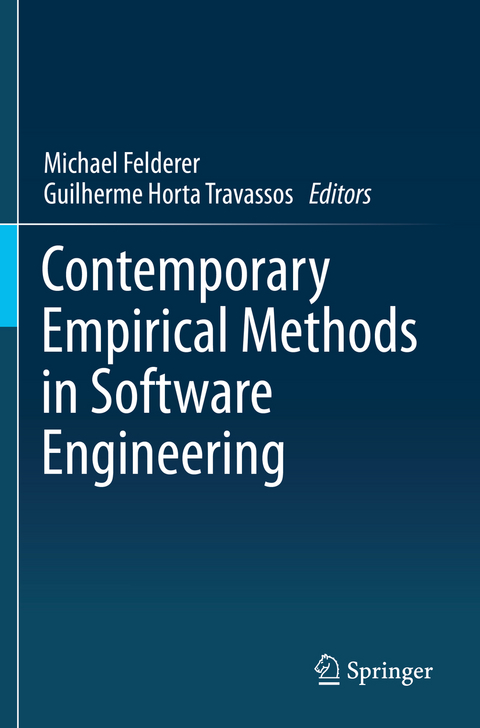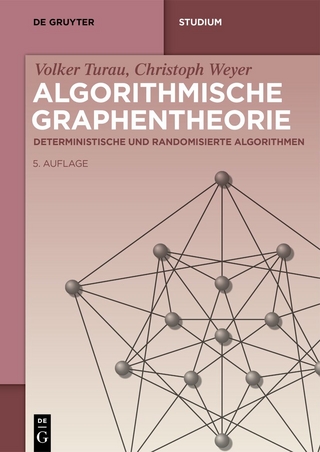
Contemporary Empirical Methods in Software Engineering
Springer International Publishing (Verlag)
978-3-030-32491-9 (ISBN)
This book presents contemporary empirical methods in software engineering related to the plurality of research methodologies, human factors, data collection and processing, aggregation and synthesis of evidence, and impact of software engineering research. The individual chapters discuss methods that impact the current evolution of empirical software engineering and form the backbone of future research.
Following an introductory chapter that outlines the background of and developments in empirical software engineering over the last 50 years and provides an overview of the subsequent contributions, the remainder of the book is divided into four parts: Study Strategies (including e.g. guidelines for surveys or design science); Data Collection, Production, and Analysis (highlighting approaches from e.g. data science, biometric measurement, and simulation-based studies); Knowledge Acquisition and Aggregation (highlighting literature research, threats to validity, and evidence aggregation); and Knowledge Transfer (discussing open science and knowledge transfer with industry).
Empirical methods like experimentation have become a powerful means of advancing the field of software engineering by providing scientific evidence on software development, operation, and maintenance, but also by supporting practitioners in their decision-making and learning processes. Thus the book is equally suitable for academics aiming to expand the field and for industrial researchers and practitioners looking for novel ways to check the validity of their assumptions and experiences.
Chapter 17 is available open access under a Creative Commons Attribution 4.0 International License via link.springer.com.lt;br>
Michael Felderer is a professor at the Department of Computer Science at the University of Innsbruck, Austria, and a guest professor at the Department of Software Engineering at the Blekinge Institute of Technology, Sweden. His fields of expertise and interest include software quality, testing, software processes, data-driven engineering, software analytics and measurement, requirements engineering, model-based software engineering, and empirical research methodology in software and security engineering. His research has a strong empirical focus also using methods of data science and is directed towards development and evaluation of efficient and effective methods to improve quality and value of industrial software systems and processes in close collaboration with companies. He has more than 10 years of industrial experience as a senior executive consultant, project manager and software engineer and is an internationally recognized member of the software engineering research community.
Guilherme Horta Travassos is a professor at the Systems Engineering and Computer Science Program (PESC), COPPE/Federal University of Rio de Janeiro, a CNPq Researcher and an ISERN member. He leads the Experimental Software Engineering Group at COPPE/UFRJ since 2001, after coming back from a post-doctoral at UMCP/USA and NASA/SEL. His research interests concern experimental software engineering and the engineering of contemporary software systems (Internet of things, industry 4.0, and context-awareness, among others) and involve software quality, software verification, validation and testing, ubiquitous systems, simulation, and environments and tools to support the development and evolution of experimentation and development methods in software engineering. He also intensively collaborates with the software industry through research and development projects at the COPPE/UFRJ.
1. Introduction: The Evolution of Empirical Methods in Software Engineering.- Part I: Study Strategies.- 2. Guidelines for Conducting Software Engineering Research.- 3. Preliminary Guidelines for Case Survey Research in Software Engineering.- 4. Challenges in Survey Research.- 5. The Design Science Paradigm as a Frame for Empirical Software Engineering.- Part II: Data Collection, Production, and Analysis.- 6. Biometric Measurement in Software Engineering.- 7. Empirical Software Engineering Experimentation with Human Computation.- 8. Data Science and Empirical Software Engineering.- 9. Optimization in Software Engineering - A Pragmatic Approach.- 10. The Role of Simulation-based Studies in Software Engineering Research.- 11. Bayesian data analysis in empirical software engineering-The case of missing data.- Part III: Knowledge Acquisition and Aggregation.- 12. Automating Systematic Literature Reviews.- 13. Rapid Reviews in Software Engineering.- 14. Benefitting fromthe Grey Literature in Software Engineering Research.- 15: Systematic Assessment of Threats to Validity in Software Engineering Secondary Studies.- 16. Evidence Aggregation in Software Engineering.- Part IV: Knowledge Transfer.- 17. Open Science in Software Engineering.- 18. Practical industry co-production and technology and knowledge interchange.
| Erscheinungsdatum | 29.08.2021 |
|---|---|
| Zusatzinfo | X, 525 p. 83 illus., 42 illus. in color. |
| Verlagsort | Cham |
| Sprache | englisch |
| Maße | 155 x 235 mm |
| Gewicht | 805 g |
| Themenwelt | Mathematik / Informatik ► Informatik ► Software Entwicklung |
| Mathematik / Informatik ► Mathematik ► Finanz- / Wirtschaftsmathematik | |
| Schlagworte | bayesian data analysis • Biometric Measurement • Collaboration in software development • Design science • empirical software engineering • Empirical Studies • Evidence-based Software Engineering • experimentation • Knowledge Transfer • open science • software development process management • software development techniques • Systematic reviews |
| ISBN-10 | 3-030-32491-5 / 3030324915 |
| ISBN-13 | 978-3-030-32491-9 / 9783030324919 |
| Zustand | Neuware |
| Haben Sie eine Frage zum Produkt? |
aus dem Bereich


